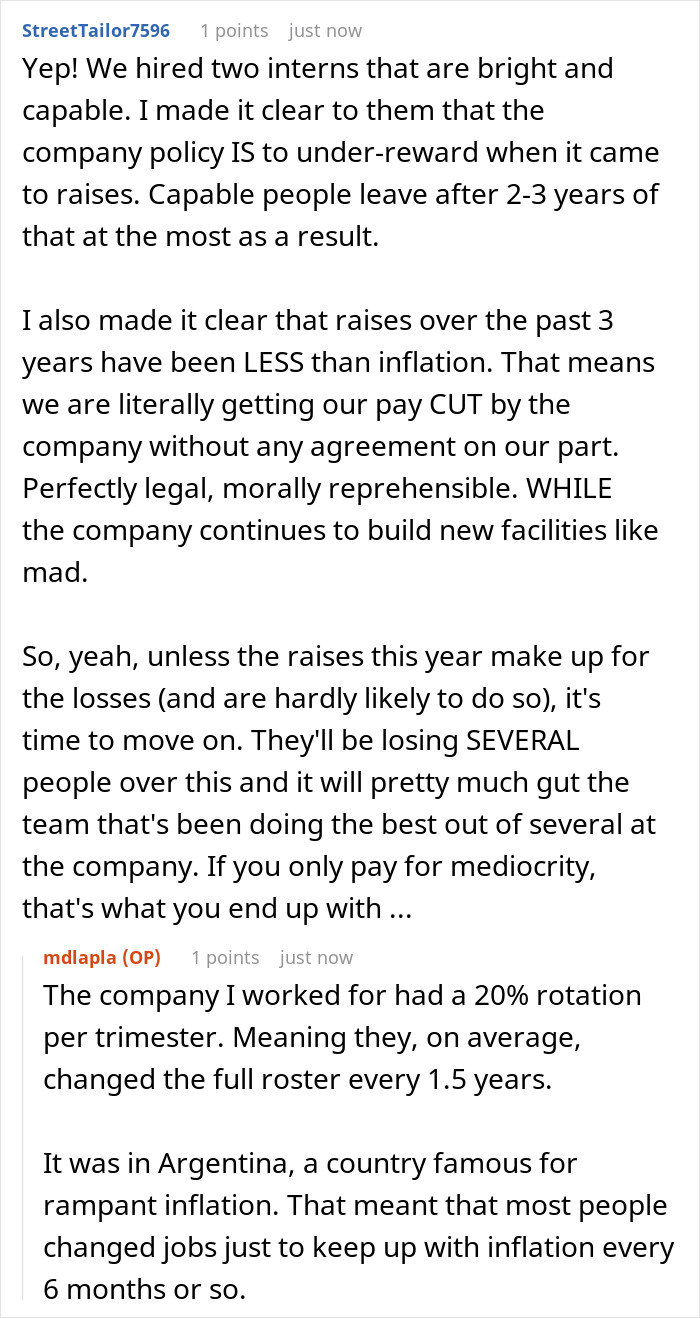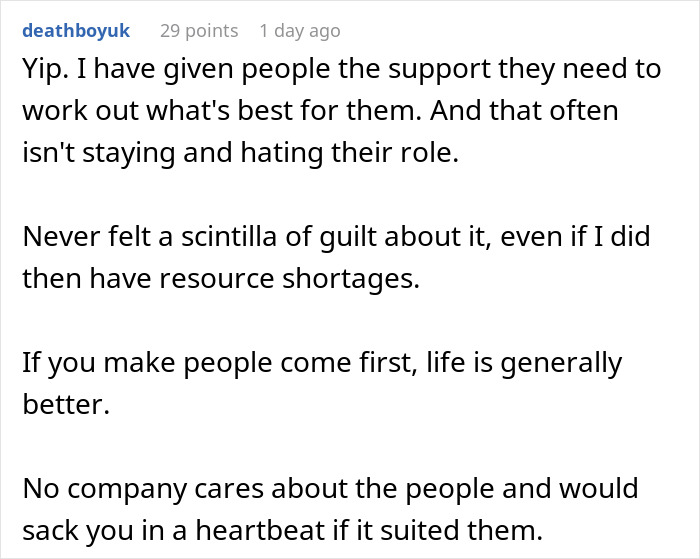What motivates you to do a great job at work? Is it the pressure to earn a decent paycheck to support your family? Or maybe it’s the desire to fund some travels this summer? Or perhaps it’s just the fact that you need to pay rent and eat this month.
But no matter how much you need a paycheck, if you really hate your job, finding a reason to work hard is going to be like trying to find a needle in a haystack. That’s why one team leader decided that there was no point in trying to motivate an employee who was clearly unhappy. Below, you’ll find the full story that he recently shared on the Malicious Compliance subreddit, as well as some of the replies readers shared.
Finding motivation at work can be incredibly difficult

So when this team leader was blamed for an employee’s lack of motivation, he simply gave up on trying to incentivize him
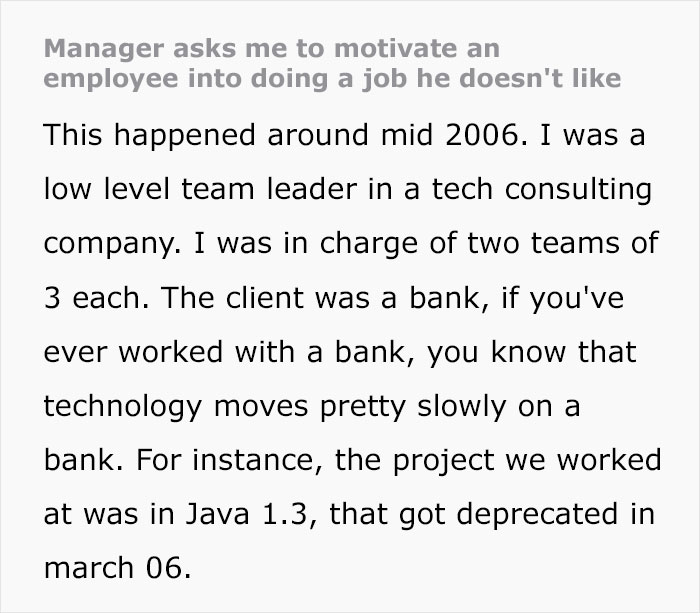

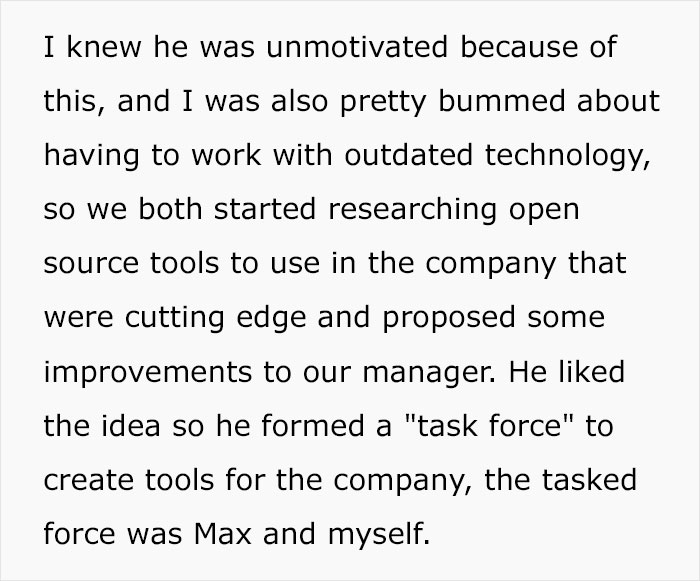

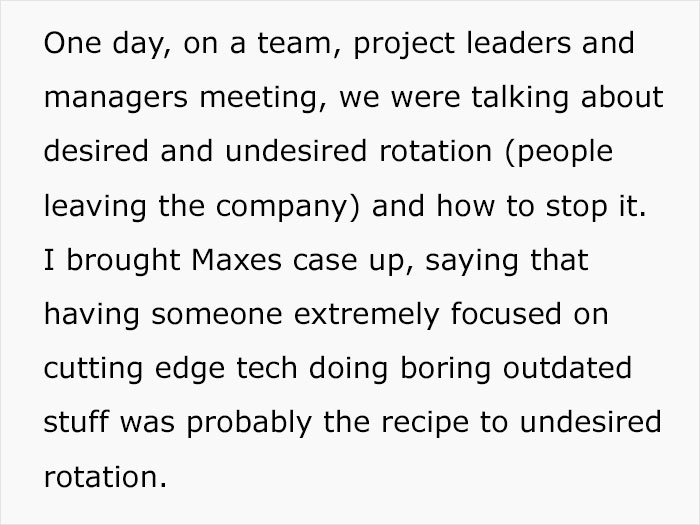


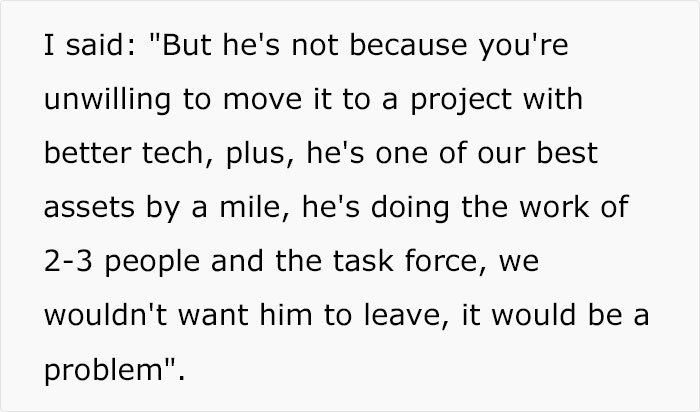
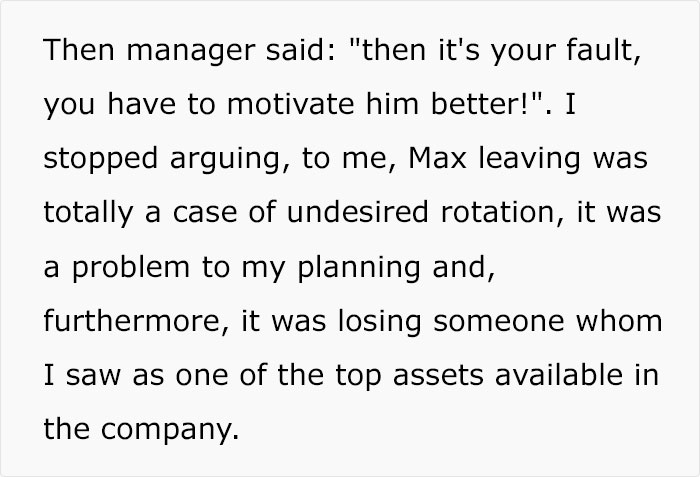
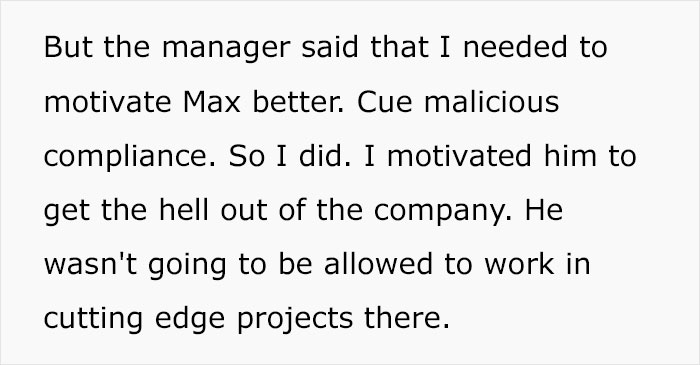
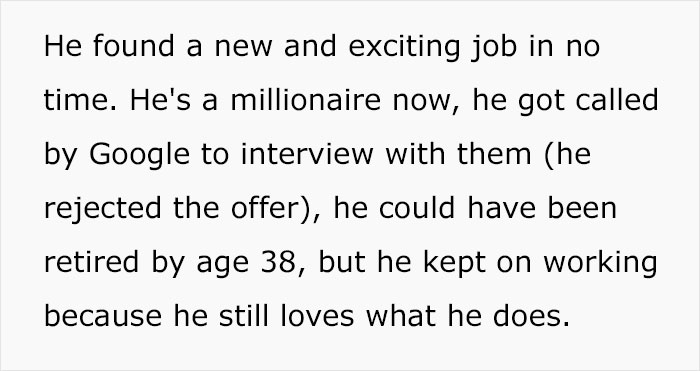
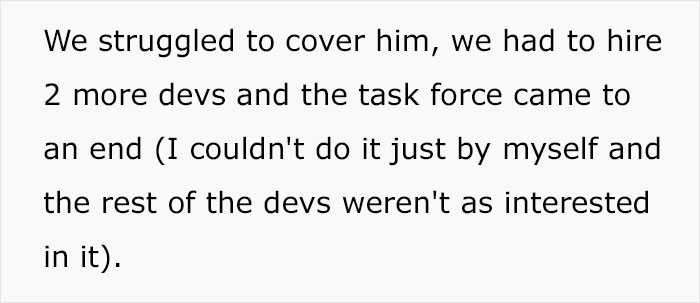
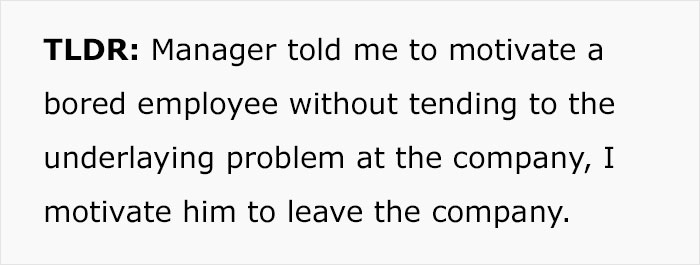
Image credits: mdlapla
Only about 15% of employees report that they feel motivated at work
When you walk into the office each morning, do you see dozens of dedicated employees rapidly typing at their computers? Or do you see a few scrolling on their phones, some chatting by the coffee machine and others snacking on croissants at their desks? Despite the fact that most of us spend at least 40 hours a week at work, most of us aren’t very motivated to be there. In fact, Motivational Speakers Agency reports that only 15% of employees around the globe feel motivated.
40% of employees also note that they feel underappreciated, and 92% believe that having trust in their leadership is a key factor that contributes to their motivation at work. But apparently, finding ways to incentive employees isn’t rocket science.
Zipdo reports that 81% of workers consider recognition to be a strong motivator, and a whopping 90% of employees say their desire to work hard increases when they have opportunities for advancement in the workplace. 88% of workers also say that having well-defined goals and objectives gives them more of a purpose at work, and nearly 40% admit that having a better work-life balance would increase their motivation.

Image credits: Headway (not the actual photo)
But finding ways to incentivize workers can be quite simple
Two thirds of workers say they would care more about their job if they actually knew their opinions mattered, and unsurprisingly, 55% say a higher salary would increase their motivation as well. Ensuring that employees are motivated can increase retention rates as well, as 79% of employees who quit say that feeling underappreciated was a key reason for leaving.
But whose responsibility is it to motivate employees? Should they be able to find a purpose at work by themselves, or is it up to their bosses to incentivize them? According to the American Management Association, managers shouldn’t worry about this. Instead, they should foster an environment where workers are able to find motivation themselves.
However, there are certainly steps bosses and management can take to help employees feel more important in the workplace. Forbes recommends taking a holistic, individualized perspective when considering the status of employees. Whether it’s compensation, community, career goals, feeling valued, etc., the key is finding what is most important to each person.

Image credits: Mario Gogh (not the actual photo)
Management can be proactive and help employees find their purpose in the company
Everyone likes to feel appreciated, and that’s something management should always keep in mind. “Showing recognition is the best way to instill confidence in them,” Reid Rubenstein told Forbes. Bosses can also be sure to provide workers with specific training and goals, so they always have something to look forward to and something to achieve in the future.
It’s wise to regularly check in with employees and ask them what they want as well. Perhaps it’s more holidays or a more flexible schedule. Maybe they’re interested in more team-building activities to feel like they belong in the company? And of course, always provide them with ample time to rest. “It can be hard for employees to remain engaged and motivated when it feels like task after task, but if you take time to set main weekly priorities in between, they will feel more accomplished and like they are making progress,” Forbes explains.
We would love to hear your thoughts on this malicious compliance in the comments below, pandas. Do you think this team leader did a great job of motivating his employee? Feel free to share, and then if you’re interested in another Bored Panda article featuring malicious compliance in the workplace, look no further than right here!

Image credits: Alex Kotliarskyi (not the actual photo)
Readers applauded the leader for his malicious compliance, and he joined in on the conversation
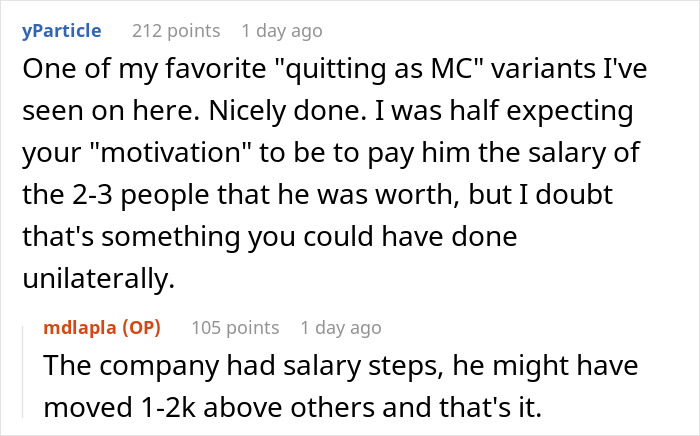


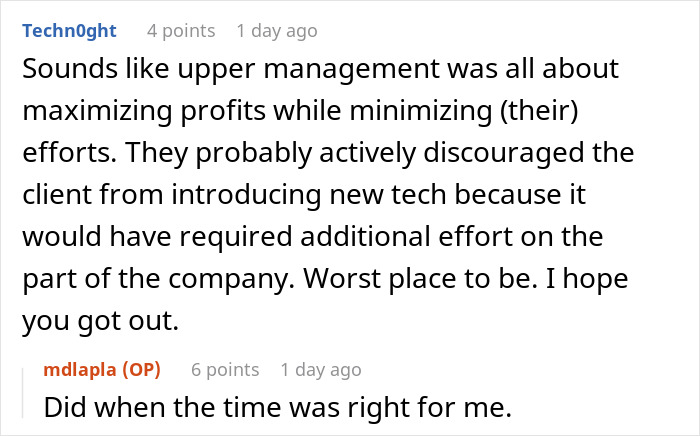




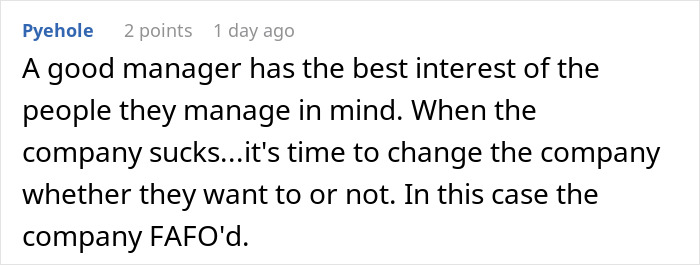

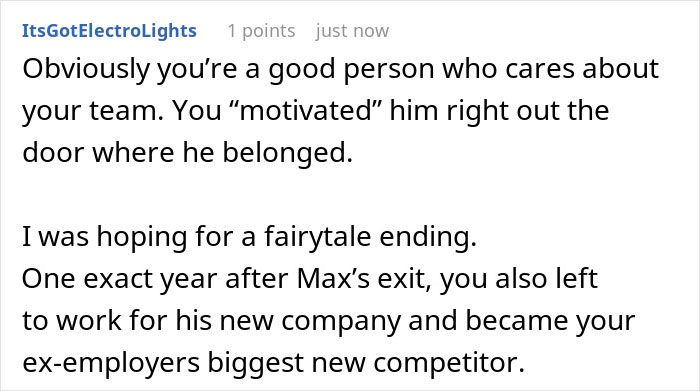
Some even had similar stories of their own to share
